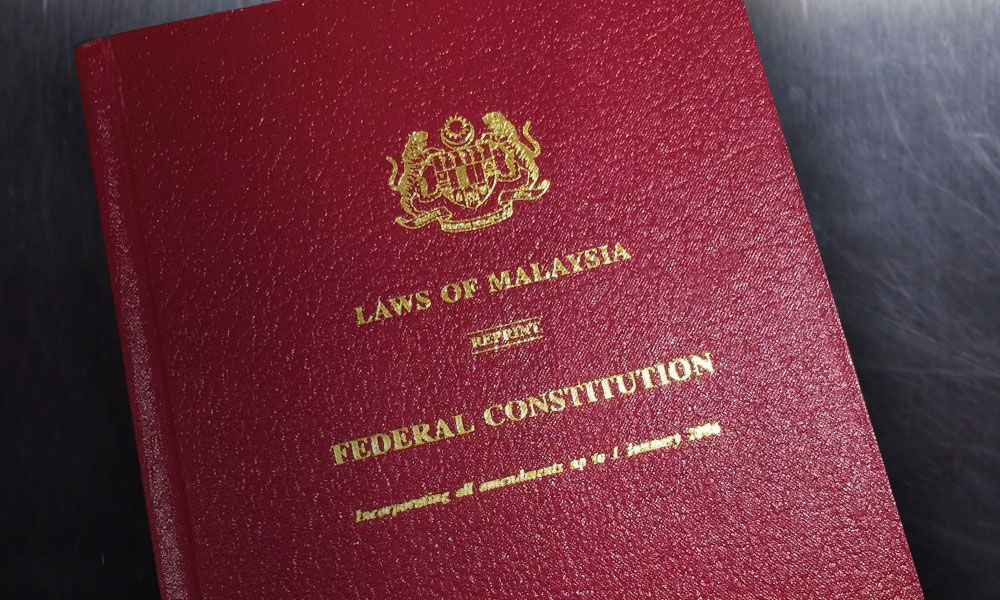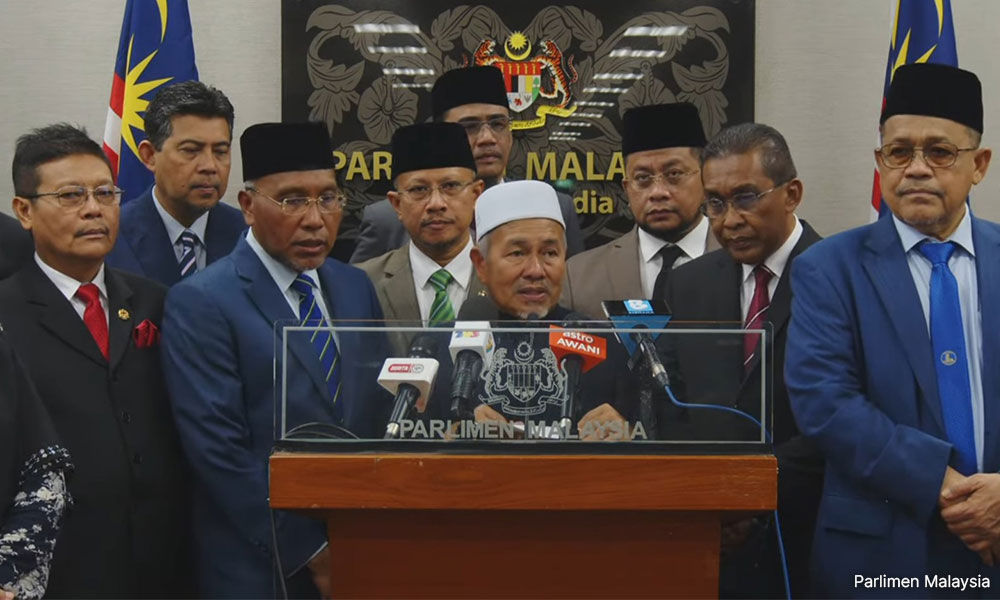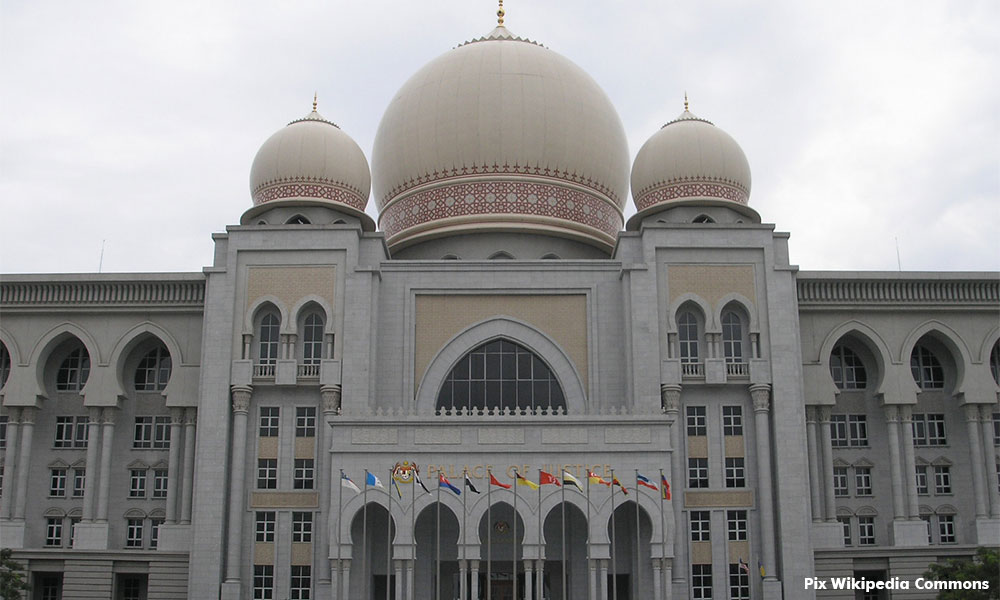KINIGUIDE | A few days ago, Perikatan Nasional members were up in arms and threatening to hold multiple public rallies over a family’s legal bid to nullify 20 syariah offences under Kelantan’s religious laws.
Kota Bharu MP Takiyuddin Hassan claimed that similar syariah enactments in all 14 states would be invalidated if the Federal Court allows the legal challenge by Kelantan-born lawyer Nik Elin Abdul Rashid and her daughter Tengku Yasmin Natasha Tengku Abdul Rahman.
The apex court is set to resume hearing of the family’s challenge on Nov 20.
The question is: Does a court's challenge over the constitutional validity of a specific state’s religious laws affect the syariah laws of states outside Kelantan?
Malaysiakini takes a look at the issue.
What is the gist of the two women’s challenge?
They are contending that Kelantan’s state legislature overstepped its jurisdiction by enacting these 20 provisions - under Kelantan’s Syariah Criminal Code (I) Enactment 2019 - to forbid Muslims in the state from being involved in these matters
They claimed that List II of the Ninth Schedule of the Federal Constitution bars the state from legislating these subject matters as syariah criminal offences.
What exactly are the subject matters in the 20 Kelantan syariah offences?
The 20 provisions cover various subject matters like false claim (Section 5 of the Kelantan enactment), destroying a place of worship (Section 11), giving away a child to a non-Muslim or morally corrupt Muslim (Section 13), sodomy (Section 14), necrophiliac sexual intercourse (Section 16), bestiality (Section 17), words that break the peace (Section 30), and sexual harassment (Section 31).
Other subject matters of these controversial Kelantan syariah criminal offences are possessing false documents and giving false information (Section 34), intoxication (Section 36), gambling (Section 37), reducing scale measurement (Section 39), transactions that go against ‘hukum syarak’ (Section 40), carrying out transactions involving usury), and abuse of halal label (Section 42).
The remainder subject matters criminalised under religious law by the state legislature are offering or providing vice service (Section 43), preparing to offer or provide vice service (Section 44), preparing to indulge in vice (Section 45), incest (Section 47), and ‘muncikari’ or person acting as an intermediary between two people for certain offences (Section 48).
Are the subject matter of these 20 Kelantan syariah criminal offences not listed in List II of the Ninth Schedule of the Federal Constitution?
A cursory reading of List II (or the ‘State List’) listed that among the state Islamic laws that can be legislated are for the creation and punishment of offences by persons professing the religion of Islam against precepts of that religion, except in regard to matters included in the Federal List.
It should be noted that the rest of the State List deals with state syariah matters of a personal nature, such as succession, testate and intestate, betrothal, marriage, divorce, dower, maintenance, adoption, legitimacy, guardianship, gifts, partitions and non-charitable trusts; Wakafs and the definition and regulation of charitable and religious trusts, the appointment of trustees and the incorporation of persons in respect of Islamic religious and charitable endowments, institutions, trusts, charities and charitable institutions operating wholly within the state, zakat, and so on.

The Federal Constitution also laid out that only the states shall administer the matter of their respective Syariah Courts to preside over the cases that fall under the State List.
So what exactly is contained in the Federal list that empowers only Parliament to legislate laws on certain subject matters that affect all Malaysians in all states nationwide?
A reading of the Federal List (also known as List I of the Ninth Schedule of the Federal Constitution) showed that it empowered Parliament on numerous matters beyond what the states could enact from the State List.
These included internal security matters such as criminal investigation, the police, public order, and corrupt practices, among others.
Multiple Penal Code offences such as theft, rape, murder, and unnatural sexual intercourse were legislated by Parliament on this basis.
What were the concerns raised by several quarters over the Kelantan-born family’s legal challenge, to the point of declaring intent to hold public rallies to voice their disapproval?
On Nov 8, PN announced it would stage a series of demonstrations to protest the legal challenge against the 20 provisions under the Kelantan syariah criminal enactment.
PAS deputy president Tuan Ibrahim Tuan Man claimed that the legal bid has major implications as its hypothetical success (if allowed by the apex court) would erase a major part of Syariah Courts’ authority.
"Islamic laws are part of faith, we can't compromise, it is a decree from Allah, and matters of faith include laws and systems within Islamic jurisprudence," he stressed.

He added that it also involves the authority of the Malay rulers, citing Selangor Sultan Sharafuddin Idris Shah's concerns about the pressure faced by the syariah legal system.
Under the law, Islam and Islamic laws fall under the purview of the respective states, with the Malay rulers acting as the head of Islam for their states.
So is the Kelantan family’s legal challenge a religious one?
The top judge of Malaysia who headed the nine-person Federal Court bench hearing the legal challenge has dissuaded this notion.
At the onset of the hearing of the challenge on Aug 17, Chief Justice Tengku Maimun Tuan Man emphasised that the matter is unrelated to Islamic doctrines and was solely based on interpretations of the wording in the Federal Constitution, the nation’s supreme law.
She stressed that the question of the family wishing to undermine the position of Islam in the country does not arise.
What does the Kelantan state government have to say against the Kelantan family’s challenge?
Through its legal team before the apex court, the state government had argued that the 20 provisions are valid as the Kelantan legislature is empowered to enact laws on offences that contravene the precepts of Islam.
Kelantan’s lawyer Kamaruzaman Muhammad Arif contended that the Reid Commission, which was behind the drafting of the Federal Constitution for the then-Federation of Malaya prior to Independence on Aug 31 1957, had issued a report intending for matters on Islam and Malay customs to be reserved within the states’ authority.
The state’s counsel also argued that state legislative assemblies’ power to draft syariah laws is recognised under the Syariah Courts (Criminal Jurisdiction) Act 1965, where both religious and civil laws coexist.
Takiyuddin had mentioned that 14 states’ syariah enactments would be invalidated if the Kelantan family’s legal bid is allowed. Is there a basis behind his concern?
Technically, the family’s legal bid only targeted the 20 syariah criminal provisions of Kelantan and no other states.
In the event that the apex court allows the legal bid, the immediate effect is a declaration that the 20 said state provisions are invalid for contravening the precepts of the Federal Constitution.
However, it should be noted that any such hypothetical apex court ruling favouring the Kelantan family’s challenge could be used as precedent by other allegedly aggrieved parties in other states to mount similar challenges against those states’ syariah provisions.

Does any apex court ruling favouring the family would result in the 20 provisions instantly being removed from Kelantan’s written laws?
Immediately after any such apex court verdict, the written provisions would still be physically in the state books.
Rather, the impact of any such Federal Court ruling is to strip the legitimacy of Kelantan’s 20 syariah criminal enactments.
In an ideal situation over such a hypothetical scenario, the Kelantan state government and state representatives would need to amend the Syariah Criminal Code (I) Enactment and remove the 20 impugned provisions.
Have there been previous attempts to challenge state syariah laws?
Previously, a man faced with a syariah criminal charge of ‘sexual intercourse against the order of nature’ succeeded in getting a 2021 apex court ruling that invalidated a Selangor syariah law that criminalises ‘unnatural sex’ for Muslims.
A nine-person Federal Court bench also chaired by Tengku Maimun allowed the man’s bid on grounds that the offence is one that falls under federal jurisdiction and not for the state to legislate.
The apex court declaration nullified Section 28 of the Syariah Criminal Offences (Selangor) Enactment 1995. - Mkini




No comments:
Post a Comment
Note: Only a member of this blog may post a comment.